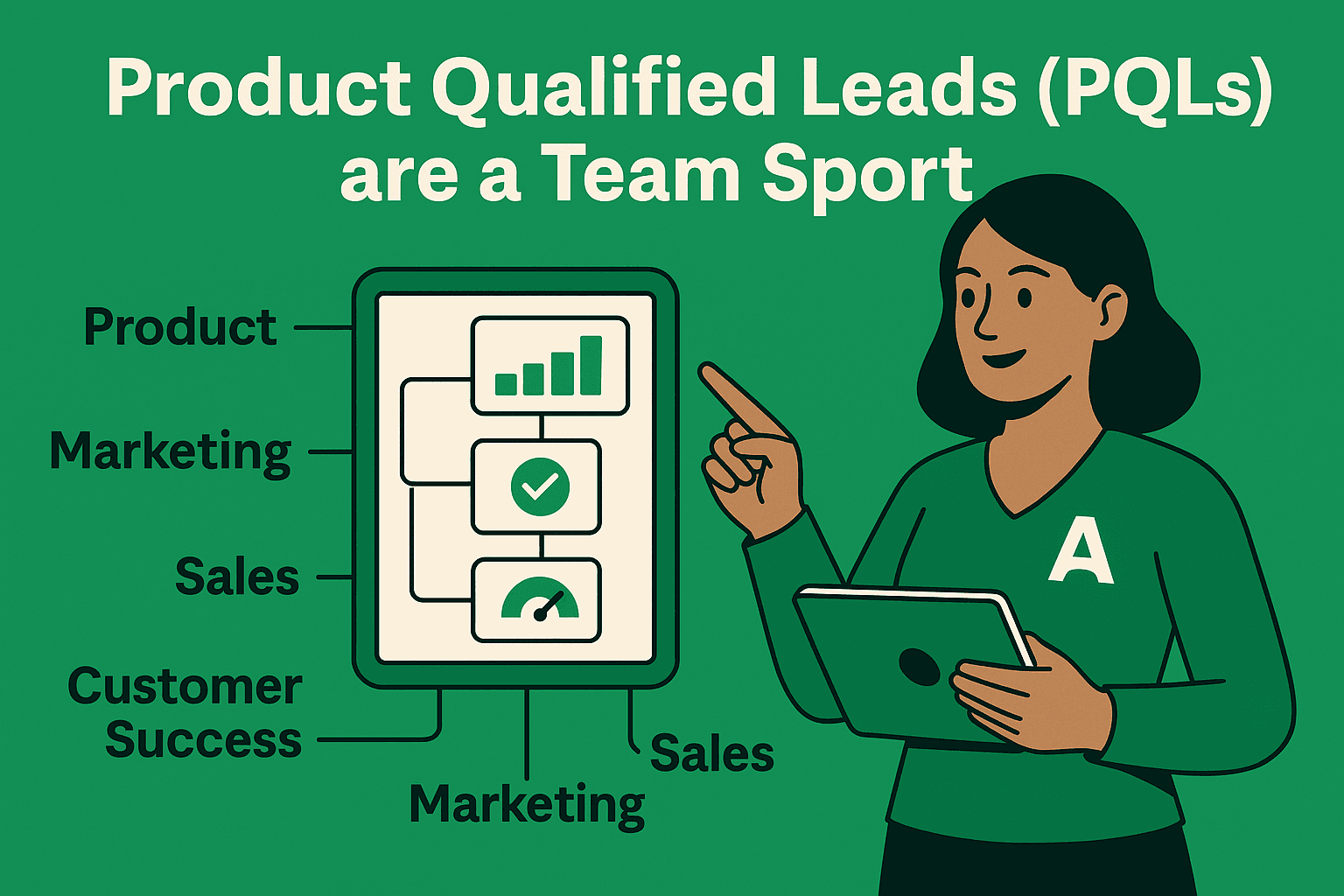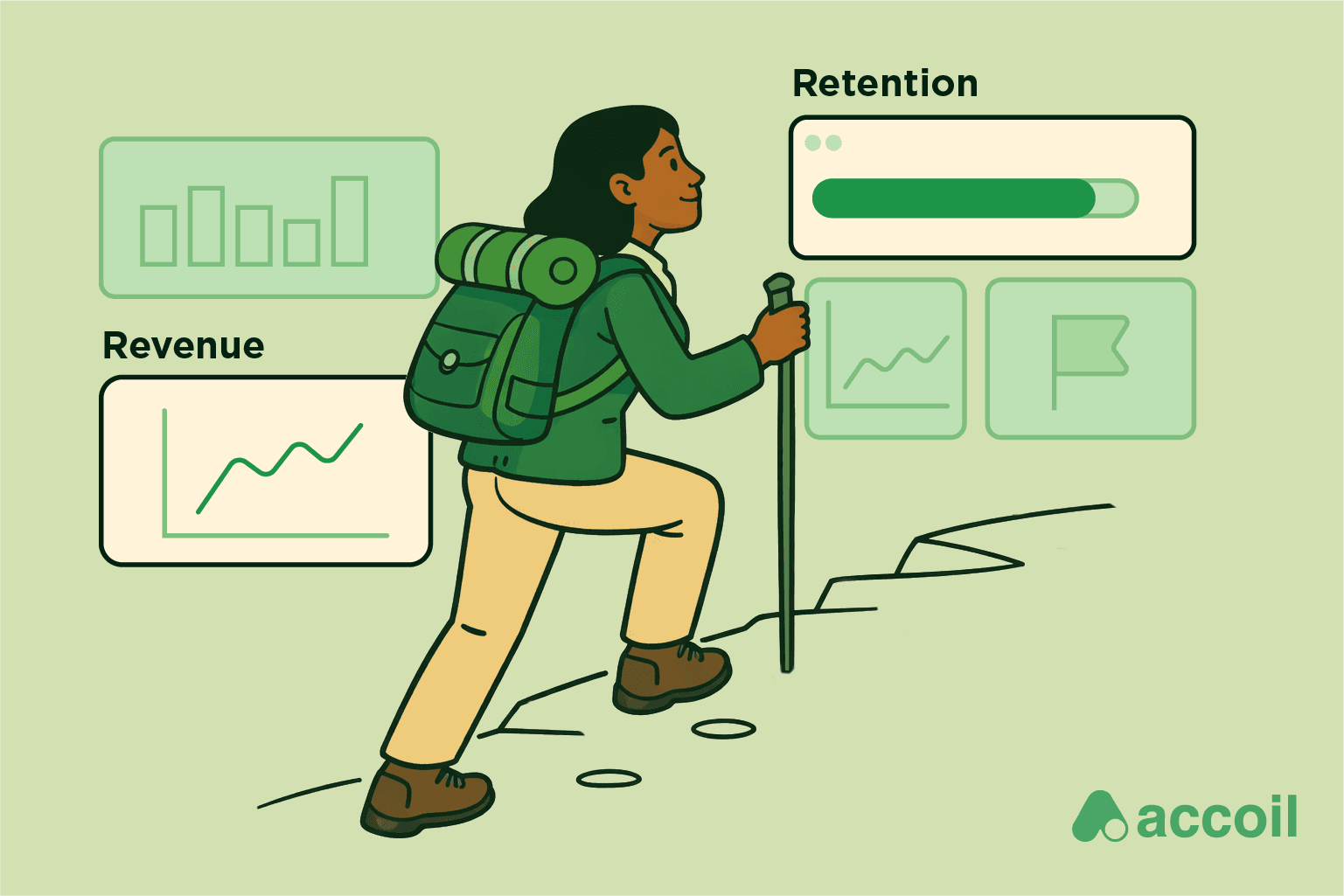The evolution of SaaS means traditional software sales are out, and try-before-you-buy is in. Counting site visits or webinar attendance no longer predicts conversion. Today, the best sign of a lead's future success is how they engage with your product.
Accoil helps you see which accounts are most likely to convert. It does this by tracking real product success before customers even start paying. Any SaaS team can benefit from a solid process to identify and engage Product Qualified Leads, or PQLs.
Which teams need to be involved in your Product Qualified Lead process?
At a minimum, you need these teams:
- Product
- Marketing/Growth
- Sales/Revenue Ops (if you have one)
- Sales
- Customer Success
While it may seem like a lot, each team's role fits within its normal work. Let's break down who does what.
Product Team: The Gatekeepers
Your Product team defines the experience that shows value quickly. They design onboarding flows, in-app messages and help guides that guide users to success. They also own the engagement data that fuels your PQL process—tracking feature adoption, activation progress and user activity in each account.
Marketing/Growth Team: The Architects
Your Growth marketer shapes the journey from trial to value. They map signup flows, draft onboarding emails and set up in-product guides. They also analyse data to define what makes a PQL for your business. Their playbook turns that definition into action so qualified leads move smoothly to sales.
Sales/Revenue Ops: The Trafficker
If you have a Sales Ops or Revenue Ops team, they keep the process flowing. They send PQL data where it needs to go so your sellers spend less time hunting and more time selling. They set up notifications, dashboards and reports to surface the right leads at the right moment.
Sales: The Closers
Your Sales reps turn PQLs into signed deals. They also feed back insights on lead quality. Their frontline input helps you refine your PQL criteria and close more deals over time.
Customer Success: The Caregivers
In a product-led model, your Customer Success team can support before and after the sale. They know how to help users find value fast. Engaging CS early can turn hesitant trial users into confident buyers.
PQLs as a Unifying KPI
PQLs bridge teams and align efforts around one shared metric.
- For Marketing, more PQLs mean you're attracting leads who actually engage.
- For Product, PQLs prove users find value and earn a spot at the revenue table.
- For Sales, PQLs are a curated list of buyers ready to close.
- For Customer Success, PQLs spot proactive users who fit your ideal profile.
Most importantly, PQLs give everyone a reason to collaborate, reduce silos and drive consistent growth.



